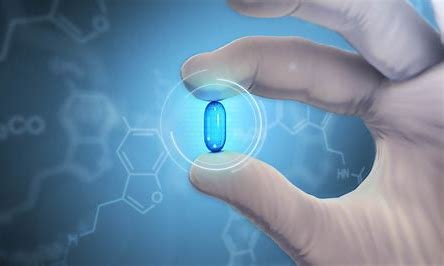GenScript Launches GMP Single-Strand and Double-Strand DNA Service for Supporting Gene and Cell Therapy Development
17 May 2022 | Tuesday | News

Image Source : Public Domain
GenScript USA Inc., the world's leading life-science research tools and services provider, announced the availability of new GMP-grade GenExact™ single-stranded DNA (ssDNA) and GenWand™ closed-end linear double-stranded DNA (dsDNA) services. These services will enable next-generation gene and cell therapy R&D programs to advance to IND filing and clinical trials faster and more efficiently.
Today's announcement, made at the American Society of Gene & Cell Therapy (ASGCT) 25th annual meeting (booth #280), further establishes GenScript as the leading provider of non-viral homology-directed repair (HDR) template solutions for immune-cell engineering. GenScript now offers varying grades of non-viral HDR payload materials that support use cases across early discovery research, process development, and clinical studies.
CRISPR-based non-viral gene insertion methods have gained popularity among research teams with concerns about the FDA's recent draft guidance concerning the use of viruses for gene and cell therapy. Non-viral HDR templates, in combination with CRISPR technology, can accelerate cell engineering compared to traditional GMP virus-based engineering, delivering results faster than alternate techniques.
"This new investment by GenScript demonstrates our commitment to non-viral delivery technology. We look forward to continuing to work with our partners and stakeholders in academia and industry to support their cell therapy R&D programs and further development of non-viral delivery platforms and workflows," said Ray Chen, PhD, president of GenScript USA Life Science Group. "We know this technology will be a more efficient and safer solution for cell engineering."
New services designed to support both INDs and Phase 1 clinical trials
GenScript's GMP ssDNA And dsDNA services enable faster CAR-T drug development:
- GenExact™ ssDNA up to 5000nt in length, 100mg/batch production scale
- GenWand™ closed-end, linear dsDNA up to 10,000nt in length, gram level/batch production scale
GenScript has been collaborating with several academic and industry partners in the development of CRISPR non-viral gene insertion. Recently, Dr. Alex Marson's lab at UCSF published a paper demonstrating how CRISPR RNP technology can both knock out endogenous T-cell receptors and integrate replacement anti-cancer receptors.
The UCSF team has been using GenScript's latest single-strand DNA to improve non-viral gene knock-in efficiency. Working in collaboration with GenScript, the team engineered modifications to the DNA payload to promote co-localization and delivery (or 'shuttle') to the nucleus.
Most Read
- How Does GLP-1 Work?
- Innovations In Magnetic Resonance Imaging Introduced By United Imaging
- Management of Relapsed/Refractory Multiple Myeloma
- 2025 Drug Approvals, Decoded: What Every Biopharma Leader Needs to Know
- BioPharma Manufacturing Resilience: Lessons From Capacity Expansion and Supply Chain Resets from 2025
- APAC Biopharma Review 2025: Innovation, Investment, and Influence on the Global Stage
- Top 25 Biotech Innovations Redefining Health And Planet In 2025
- The New AI Gold Rush: Western Pharma’s Billion-Dollar Bet on Chinese Biotech
- Single-Use Systems Are Rewiring Biopharma Manufacturing
- The State of Biotech and Life Science Jobs in Asia Pacific – 2025
- Asia-Pacific Leads the Charge: Latest Global BioSupplier Technologies of 2025
- Invisible Threats, Visible Risks: How the Nitrosamine Crisis Reshaped Asia’s Pharmaceutical Quality Landscape
Bio Jobs
- Sanofi Turns The Page As Belén Garijo Steps In And Paul Hudson Steps Out
- Global Survey Reveals Nearly 40% of Employees Facing Fertility Challenges Consider Leaving Their Jobs
- BioMed X and AbbVie Begin Global Search for Bold Neuroscience Talent To Decode the Biology of Anhedonia
- Thermo Fisher Expands Bengaluru R&D Centre to Advance Antibody Innovation and Strengthen India’s Life Sciences Ecosystem
- Accord Plasma (Intas Group) Acquires Prothya Biosolutions to Expand Global Plasma Capabilities
- ACG Announces $200 Million Investment to Establish First U.S. Capsule Manufacturing Facility in Atlanta
- AstraZeneca Invests $4.5 Billion to Build Advanced Manufacturing Facility in Virginia, Expanding U.S. Medicine Production
News











